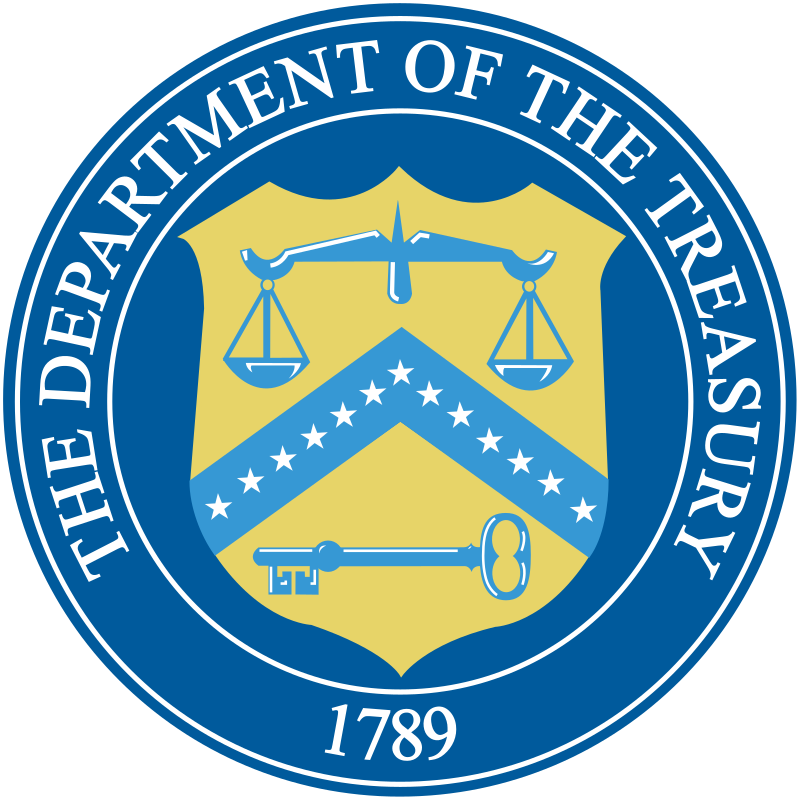One year has passed and you have worked hard to stay on budget, save, invest, and plan. Now you are about to enter the room to meet with your financial advisor. You know you’ll talk about your financial goals and how they will meet your evolving needs. But this is the optimal time for you take control of the meeting to dig into what really matters for your financial future.
Remember you are the one person who has your best interest in mind. So it’s a good idea to make sure you are well prepared to ask key questions about financial planning and how investment decisions are made.
In this blog post I list 100 questions to ask your financial advisor during annual review across 10 key topics areas. This way you can get the financial advice you need.
Questions on Portfolio Performance
Understanding the performance of your investment portfolio is essential to evaluate the effectiveness of your current strategy. Ask your financial advisor to provide an overview of your portfolio’s performance. Ask for a holistic performance review, as well as individual securities or areas.
For instance, if your stock portfolio generated 15% returns over the past year, ask your advisor which stocks did well and which ones did poorly. You are more than welcome to get deeper by asking, “Does this stock still fit within my financial goals?” Or, “Do you see any further upside to this security?”
You can then assess if your portfolio met your expectations and compare it to relevant benchmarks. This question helps identify any areas that may require adjustment and provides a starting point for further discussions.
Further, your benchmark should be a pre-determine metric. Most stock portfolios compare to the S&P500, which comprises of the 500 largest companies in the stock market. However, there are other metrics such as the Dow Jones Industrial Average, MSCI ACWI for international markets, the Bloomberg US Aggregate Bond index to compare bond portfolios, or the Bloomberg Municipal Bond Index to compare Municipal Bond Performance.
Below I listed several questions to ask your financial advisor about your performance.
- How has my investment portfolio performed over the past 1-year, 3-year, and 5 years and how has it performed compared to my designated benchmark? Further, how has my net worth changed during the same time period.
- Can you breakdown the performance of individual securities? Which ones outperformed and which ones underperformed?
- Compared to last year, did we make any changes to the portfolio composition or my investment strategy that impacted or influenced performance?
- What were the main drivers of performance, both negative and positive drivers?
- What economic events influenced my portfolio performance this year?
- When taking into consideration of my risk tolerance, how did my risk-adjusted performance do this year compared to my financial objectives?
- How did my portfolio perform compared to other clients you have who have similar objectives or goals?
- How did my portfolio perform during different market conditions such as market volatility, bull runs, or downturns?
- How did my portfolio perform compared to my designated benchmark after you take out the fees and how did it perform when fees are included?
- Based on my portfolio’s performance, is there anything we can take away in order to optimize my portfolio for the year ahead?

Questions on Investment Objectives or Risk Tolerance
This is an opportunity for you to ask your advisor about changes in your life and how it would impact your financial goals. For instance, did you recently get married or have a child? Do you plan on purchasing a home? Or, do you need to start saving for your child’s education.
Or perhaps, you are looking for more passive income strategies that can supplement your active income. Your Financial Advisor can recommend securities or products that can help achieve these goals, by explaining the return you can get on your investment, the risk involved, or providing additional information on financial products or tools to help you explore other options.
Below is a list of questions to ask your financial adviser.
- What major events are on the horizon that would impact my investment goals?
- Are my current investment objectives realistic or attainable?
- Based on my current financial situation, should we consider changing my risk tolerance?
- If I want to increase my risk tolerance, what are the pros and cons in doing so? Vice versa, if I want to decrease my risk tolerance, what are the pros and cons?
- Can you describe or illustrate some scenarios on what would happen if we adjusted my risk tolerance?
- What are the risks or consequences if I do not change my risk tolerance?
- Do we need to make any adjustments to my portfolio so that it is better aligned with my updated investment objectives?
- Are there any tax implications we need to consider if we update my investment objective?
- After we updated my investment objectives or risk tolerance, will there be any changes in the fees I will incur in my portfolio?
- How frequently should we assess my investment objective or risk tolerance? Should we revisit every time we meet? Or should we revisit more or less frequently?

Questions on Major Events or Themes in the Financial Markets
Your advisor should be explaining to you what is happening to the landscape of the financial markets. For instance, how is inflation or higher interest rates impacting the markets? Or, what type of geopolitical events are occurring that may impact your portfolio.
I recommend you do a little research prior to asking this question to your financial advisor. Not only will you look more prepared, but also you can ask specific questions to your advisor on items you may not understand.
There are plenty of financial resources available to help you get caught up to speed with what is going on in the financial markets. Key resources to use include:
Although current market events will change frequently, below are a few examples of questions to ask your financial advisor.
- Why are higher interest rates making my current bond portfolio less attractive?
- How are tensions between the US and China going to impact the markets?
- How will the BRICCS new gold-back security impact the US dollar and your investment portfolio.
- What economic activity are currently influencing market trends?
- What government policies or geopolitical events are leading to stability or instability in the markets?
- What type of supply and demand for products, services, or currencies are creating push/pull dynamics in prices?
- Can you provide color or insights into market reactions to similar market events?
- How does this specific market event align with my investment interests?
- Which specific sectors or industries would be impacted the most by this specific market event?
- What steps can we take to protect the downside risk associated with this event?
- Should we expect any market volatility or liquidity risk as a result from this market event?

Questions on Asset Allocation
Review your investment allocation to ensure there is proper diversification in your portfolio. Ask your financial advisor to discuss potential adjustments based on your risk profile and the current market landscape.
A few examples may be your advisor had your portfolio tilted more towards growth stocks, but over the past year, he/she adjusted your portfolio to more value stocks. If this happened, ask why the adjustment was made. Perhaps, during your last meeting, you wanted to be more risk adverse, which would lead to more capital preservation versus potentially gaining more than average returns.
Below are questions you should ask your financial advisor.
- Can you please provide me a breakdown on how my assets are allocated between stock, bonds, real estate, cash, etc.?
- What is the rationale for my current asset allocation?
- Can you give me a breakdown between domestic assets and international assets?
- Within my stock portfolio, how are my assets allocated between different sectors or industries? Further, how are my stocks allocated between growth stocks versus value stocks? Why is this the appropriate mix? And how has this mix’s past performance?
- How does my current asset allocation align with my risk tolerance and my long term financial goals?
- Can you explain how my current asset allocation helps enhance returns and minimize risk?
- Does my current portfolio have any overexposure or concentration in areas that need to be addressed?
- Are there asset classes that are not in my portfolio that we should consider exploring to help diversify?
- Can you provide the historical performance metrics for the different asset classes within my portfolio? How about historical performance of other assets classes we may explore?
- Is there an opportunity for us to be more tactical in our asset allocation to take advantage of short-term market conditions?

Questions on Fees you are paying
Ask your financial advisor to describe the fee structure associated with your investments and compare them to industry benchmarks. Evaluate whether the fees you’re paying are reasonable and explore alternative investment options. Ask your financial advisor how he/she is individual getting compensated or how the firm gets compensated from your account. Further, ask your advisor for a breakdown of costs including advisor fees, fees paid on mutual funds or ETFs, trading fees, etc.
Here is a breakdown of questions you can ask.
- What are the specific fees and expenses that I am paying in my investment portfolio?
- Please breakdown each fee component such as management fees, transaction fees, custodian fees, and other?
- How do these fees compare to industry standard fees? Am I overpaying or underpaying? Why?
- Does your firm provide performance incentive fees that I should be made aware of?
- How are fees calculated? Are they flat fees or are they based on Assets Under Management (AUM)?
- Is there an option for me to negotiate how fees are structure and/or reduce the expenses associated with my account?
- Are there lower costs options available for me? How do I find out more information about lower-costs investment options or alternatives?
- Is my account considered an actively managed or passively managed account? And how are the fees between those difference types of managed accounts differ?
- How often do I receive a statement of my portfolio that will list out all the fees associated with my account?
- Are there any tax related concerns or benefits I should be aware of in regards to the fees I pay?

Questions on your Financial Goals
When discussing whether your current plan is on track to meet your financial goals with your financial advisor, it’s important to assess your progress and make any necessary adjustments. Things have probably changed over the past year. Or you made changes to your investment philosophy that are not panning out. Now is a good time for you to address those with your Financial Advisor so you can get the good investment advice.
Here are some questions you can ask.
- Since our last meeting, am I on track to meet my financial goals? If not, what adjustments do we need to make?
- Let’s discuss each specific goal I have. Which ones have I achieved? And which ones are at risk of not being met?
- What gaps do I have or areas of concern with my current progress that needs to be address?
- Do we need to adjust the timelines or priorities of my financial goals?
- What assumptions and variables are you using to see if I will meet my financial goals? Are they considered aggressive assumptions or conservative assumptions?
- What assumption are you using for the projected rate of return required to achieve my financial goals?
- Do I need to consider savings more or spending less to achieve my goals?
- What recommendations do you have to ensure I can meet my financial objectives?
- How is inflation impacting my financial goals? Will I have enough money by my designated timeline for my objective?
- What life events should I be thinking about that may alter my current path to my financial objectives?

Questions on Tax Strategies
Nobody likes paying taxing nor are taxes hot topics to discuss over dinner with friends. However, understanding the tax code may help you keep more of your money in your pocket. Your CPA will probably know more about the tax code, but your financial advisor should have a general sense on how taxes impact your investments.
Here are several tax questions you should be thinking about during your meeting:
- Are there any tax-efficient investment options available that align with my investment goals?
- How can I maximize my tax-efficient retirement plans such as an IRA, 401K, or pension.
- What are the tax difference between a traditional IRA vs a Roth IRA?
- What is a Health Savings Account (HSA) and can I use it to optimize my healthcare expenses?
- Are there opportunities for tax-loss harvesting in my portfolio so I can offset any large capital gains.
- How do I take advantage of tax-deferred growth or tax-free income?
- How can I minimize my tax liability by timing my capital gains and capital loses?
- What are the tax differences between dividends, interest income, and capital gains?
- What are the tax advantages for 529 plans to save for my children’s college education? What other tax-efficient strategies can I utilize to fund my children’s education?
- How do I minimize my tax impact from withdrawing money from my retirement accounts?
- Regarding my home, are there any tax credits or deductions I should consider implementing?
- Can you explain the tax impacts of different types of business entities such as Sole Proprietorship, Partnership, or Corporation?
- Are there any tax effective gift strategies I should consider if I want to gift my assets to someone?

Questions on Protecting your Investments and Potential Risks
During your annual review with your financial advisor, you need to discuss ways to protect your investments. Explore strategies that align with your goals and do not be afraid to ask questions.
Below I list a few to keep in your back pocket.
- What are the current potential risks that I could face with my investment portfolio?
- What are the different types of risks I should be aware of? What is the difference between systematic risk (market risk) and idiosyncratic risks (inherent risk exclusive to one company). How do we balance between the two?
- What is the best way to manage risk in my portfolio?
- What vulnerabilities are there within my portfolio? Do we need to make some adjustments?
- Should we consider adding alternative investments or assets classes to help diversify my risk profile?
- Can you explain the risks involved into different securities in my portfolio? For instance, what are the risks associated with owning Stock A versus owning Stock B?
- What risk management tools do you and your firm use? And how do you incorporate them into my investment portfolio?
- What investment options do I have available to me that helps with risk mitigation during a market downturn?
- How much cash reserves should I maintain in my account?
- How does the level of risk in my portfolio align with my risk tolerance?

Questions on Estate Planning
Review your estate planning documents to ensure they align with your current circumstances. Identify any updates or adjustments that may be necessary. Make sure you have a beneficiary identified. Or would it make more sense to put your assets into a Trust? These questions plus the following will help.
- Why is having a Will important and how does it impact how my assets are distributed?
- Should I consider creating a trust as part of my estate plan? What type of trust would work best in my situation? And, how do I set one up?
- What are the risks in creating an estate for my assets? Or what are the pro versus cons?
- How can I minimize estate taxes? Further, how can I make sure there is a smooth transfer of assets to my beneficiaries?
- What updates or changes to estate planning laws have happened that I should be aware of? Do we need to make adjustments based on these changes?
- How can I protect my assets and provide security to my family in case I become disability or incapable to handle my assets? Should I consider establishing a power of attorney?
- Should I establish a charitable giving plan as part of my estate planning?
- Can you explain how life insurance or other insurance products plays a role in estate planning and help determine if I have adequate coverage?
- How does my estate plan impact the business I created or other valuable assets I have?
- How do I protect my assets within my estate from potential creditors or legal disputes that may arise?
- What steps should I take to ensure my digital assets are included and protected within my estate plan?

Questions on Review Frequency
You are going to want to discuss the frequency of reviewing your financial plan and investments with your financial advisor. Make sure to find a schedule that aligns with your goals and circumstances.
Here are some questions you can ask your financial advisor to determine the appropriate frequency for reviews.
- How often do you recommend we review my financial plan and investments? Monthly, Quarterly, or annual basis etc.
- What are some of the key factors we need to consider when choosing the frequency of our reviews?
- How often do you review portfolio with your clients who have similar goals or risk as I do?
- How do you stay up to date with financial market news and updates between our meetings? What do you recommend I do in between our meetings?
- What type of scenarios would require us to have an unscheduled meeting or review that is outside our planned-scheduled meetings?

What questions will you ask?
In this article I tried to cover a lot of ground, but there may be questions you have that weren’t included. So, what questions do you plan on asking during your next meeting with your financial advisor? Please leave us a comment below, so other readers can benefit too!
Thanks so much from reading my post today. Don’t forget to subscribe to my blog so you don’t miss any new posts. And if there are areas or topics you would like to know more about, please feel free to leave it in the comments section below or reach out to us by clicking here.
Don’t Forget to Check Out Our Favorite Posts!
I hope you have enjoyed this article. Want to learn more about how to invest and gain financial freedom? Check out some of my favorite blog posts below.
- How To Pay Off Your Debt And Save
- How Often Should You Invest In Stocks For Beginners
- Passive Income 101: The Basics + Strategies To Unlock Financial Independence
- How To Build Long Term Wealth
- 11 Powerful Ways On How To Fight Inflation Today
Live well,
Blue



















One response to “100 Questions To Ask Your Financial Advisor During Annual Review”
Dear Blue, great post!